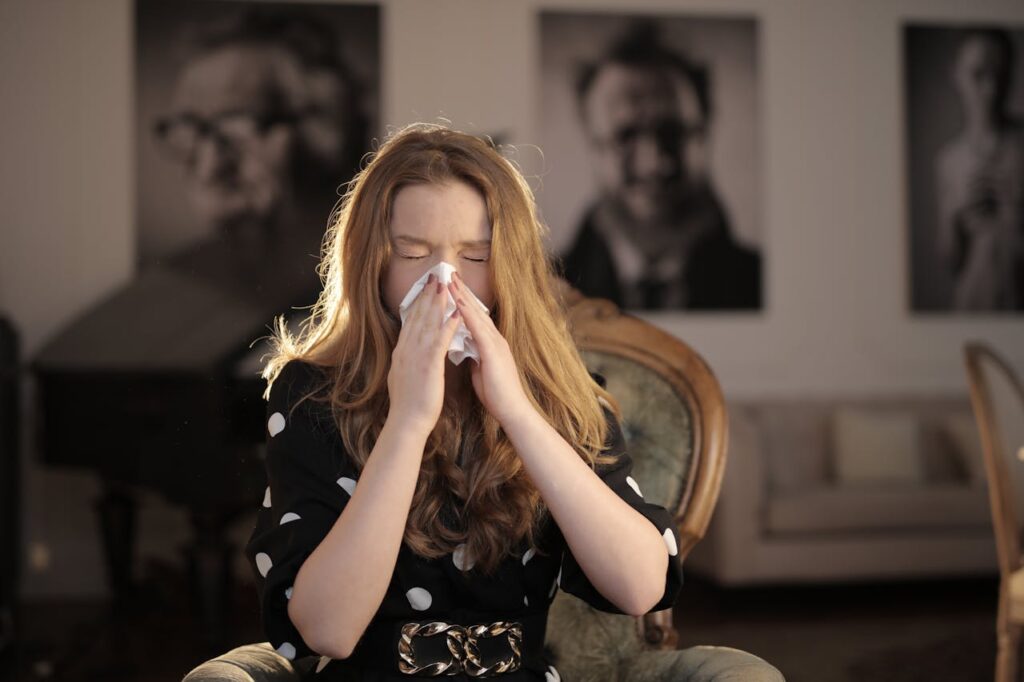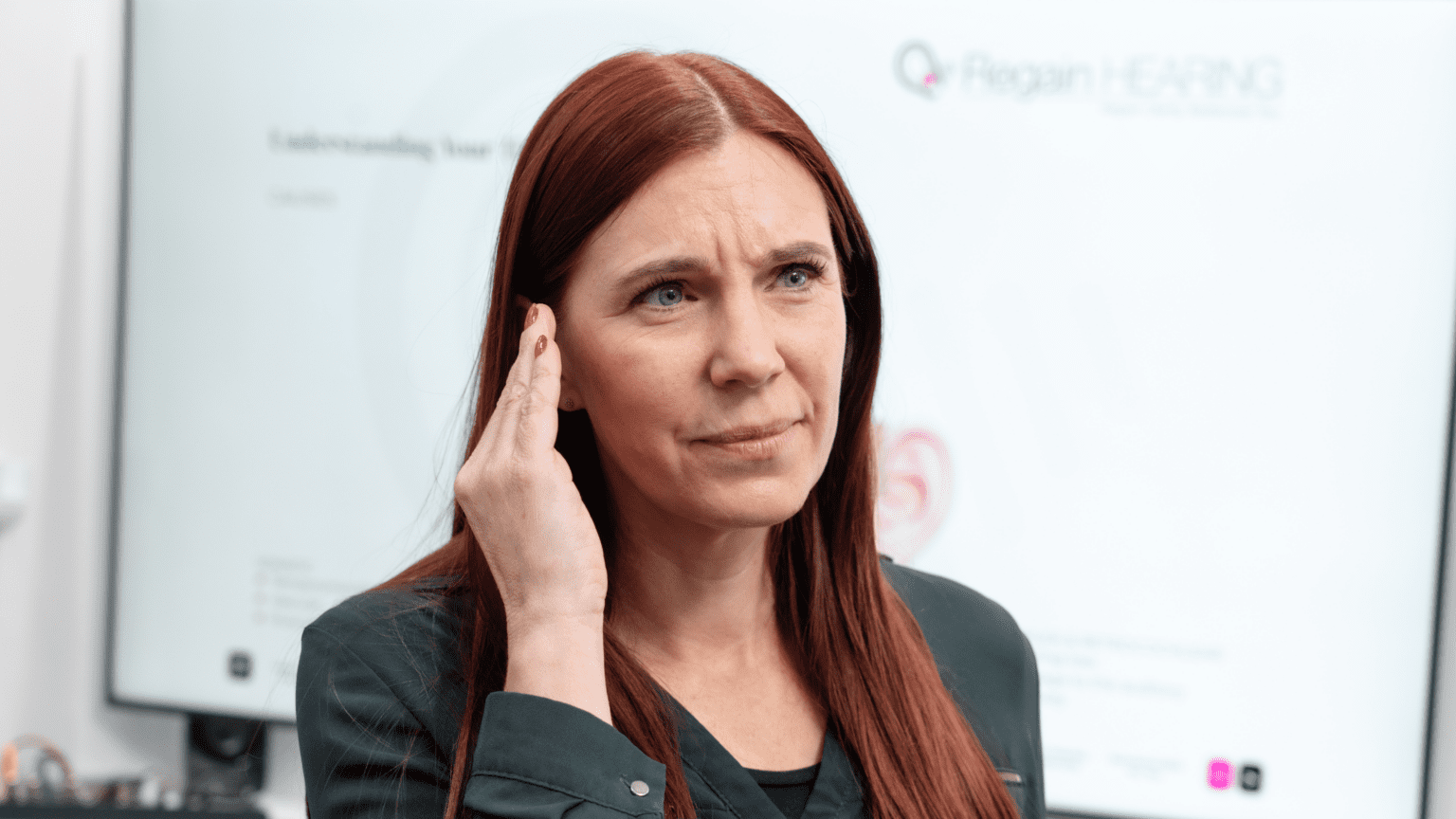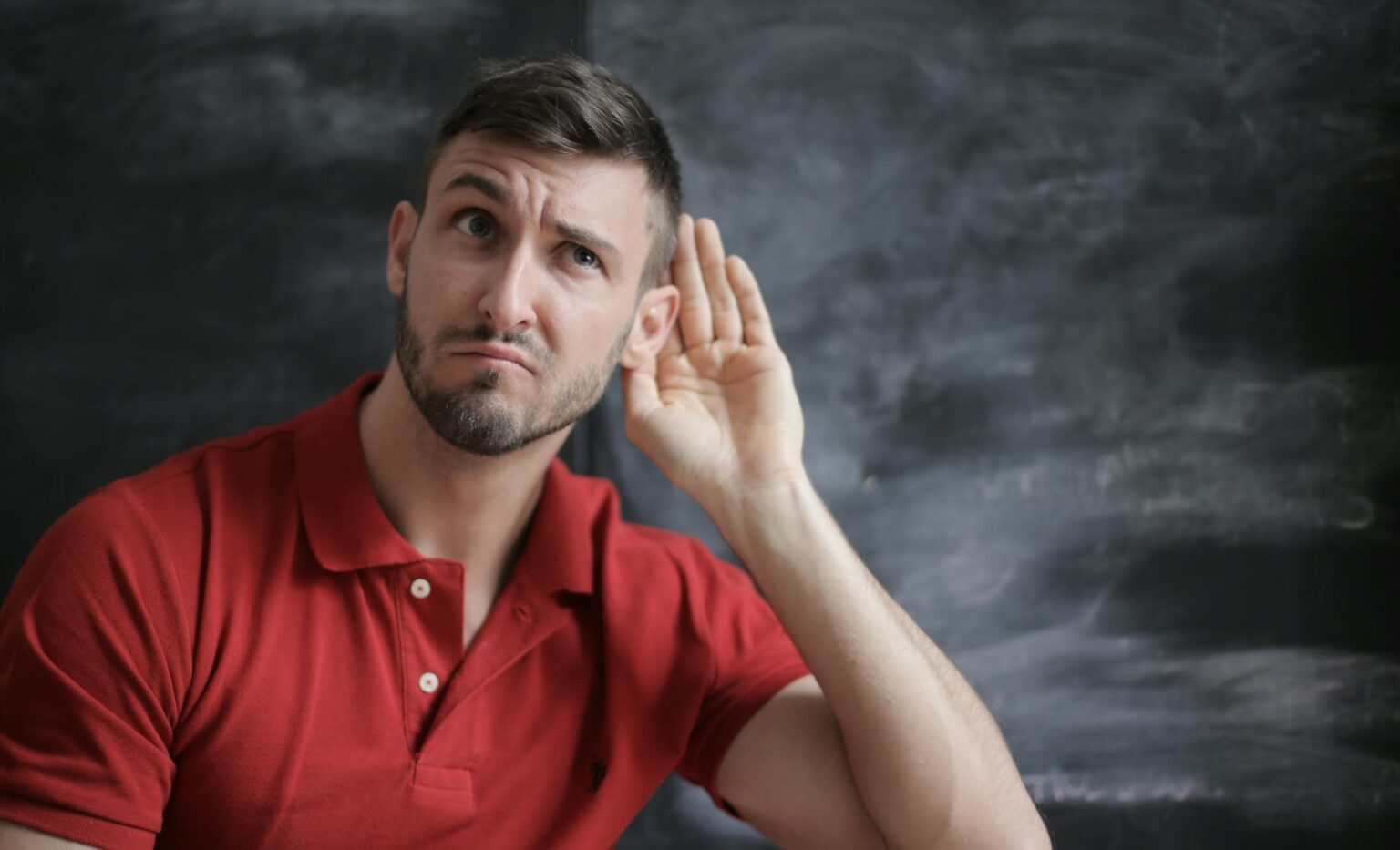Colds are a very normal viral illness that many of us tend to catch during the winter – but the extra fluid build-up doesn’t just mean blowing your nose and feeling clogged up. It can also have a short-term impact on your hearing.
Colds can cause temporary hearing loss. Those with underlying issues with their hearing find their ability to hear temporarily worsens when they have a cold.
This is because additional fluids within the middle ear can block sound waves from reaching the eardrum, which subsequently means some noises may appear muffled. More severe colds or people who are worse affected may see a more profound effect on their hearing capacity.
Fortunately for most people, this extra fluid that can accumulate in the inner ear is only there while the virus runs its course – although if you have had a cold and recovered and your hearing still isn’t back to normal, it’s well worth consulting an audiologist as soon as possible.
Colds, Viruses and Hearing: Key Takeaways
- Colds and other common viral illnesses can produce fluids that accumulate within the ear. This prevents sound waves from reaching the eardrum as they normally do and can affect hearing.
- On average, a cold reduces hearing ability by around 24 decibels, although this can almost double for those with thicker fluid build-up caused by a worse cold, longer-lasting symptoms, or a pronounced immune reaction.
- Usually, hearing loss linked with the common cold is temporary and will resolve along with your other symptoms in a few days. If not, we recommend booking a hearing consultation to check for damage or infection inside your ears.
Understanding the Reasons a Common Cold Can Disrupt Your Hearing
The common cold is a typical, non-serious illness that affects millions of people every year. This is a blanket term that refers to a host of airborne viral infections—which is why they’re so prevalent and easily caught even without making direct contact with someone who isn’t well.
One of the most typical symptoms of a cold is congestion, which means you could have a sore throat, runny, blocked nose, or sinus congestion. In some people, especially those with compromised respiration, a common cold can also lead to congestion in the chest or a chesty cough.
All the additional fluid and mucus within your sinuses and nose can enter the Eustachian tubes. These tubes are an integral part of how you hear, connecting the middle ear with the back of your throat. Their job is to drain fluids and prevent build-ups from forming in the middle ear.
However, if that tube is blocked, this is when hearing issues occur. The fluids then interfere with the way sound waves enter and are received by your ears, hence the sense of your hearing being muffled, distorted, or less able to make out lower-level sounds.
As we’ve seen, when congestion clears and you start to feel better, any effects on your hearing should also improve. However, in a small proportion of people, extended congestion that lasts for longer than normal can contribute to infections.
Hearing Complications Associated With the Common Cold
While a cold itself isn’t usually dangerous and shouldn’t have a long-term impact on your hearing, it isn’t the cold that can lead to ongoing hearing issues. Sustained hearing loss or muffled hearing is most often due to an ear infection.
It is less likely that fluid build-ups caused by your cold remain and more likely that during your cold, the mucus within your ears has contributed to an ear infection. Fortunately, these are usually easy to treat.
Inflammation within the delicate inner ear, fluid build-ups, and pressure on the nerves in the cochlea can also cause injuries and damage, which need to be treated and corrected as soon as possible to safeguard against longer-term hearing difficulties.
What do our audiologists say?

Protecting Your Hearing and Ear Health During Cold and Flu Season
It’s possible to catch a cold at almost any time, but there are also typical seasons, normally during the autumn and winter, when colds are prevalent, and hundreds of cold and flu viruses could be circulating.
These are incredibly easy to catch, especially if you work in a public-facing role, have contact with lots of people, or work in education or healthcare—alongside using public transport and attending public spaces, where colds can quickly circulate.
If you’ve previously had hearing or other health issues as a side effect of a cold or have a compromised immune system and need to do everything possible to avoid a cold or flu, we’d advise you to:
- Take up any vaccinations offered by your GP, including seasonal flu vaccines
- Avoid environments with smoke and dust that can impact your sinuses
- Dry your ears thoroughly if you swim
- Seek advice if you have a fever, pain in your ears, a possible infection, or a build-up of fluid that doesn’t go away
It’s also worth being mindful of touching surfaces that are used by multiple people, being cautious about touching your mouth, nose, or eyes after using public transport, wearing a face mask, and washing your hands regularly with soap and warm water.
How to Manage Hearing Loss During a Cold
Unfortunately, if you currently have a cold, there’s not much you can do apart from relieving the symptoms, such as taking decongestants and cold medicines widely available at pharmacies.
Although there isn’t a cure for the common cold, nasal sprays can help reduce congestion in your ears and sinuses. Focus on resting and drinking plenty of fluid to remain hydrated and speed up your recovery.
You should start to find your hearing rapidly improves when your cold symptoms pass, but it’s wise to book a hearing test if you encounter any of the following:
- Hearing loss or changes that continue for more than ten days
- Serious or total hearing loss
- Ongoing loss of hearing in one ear
- Rapid changes to your hearing
- Prolonged hearing issues after your cold has passed
We can check for infections, blockages, fluid build-ups, and damage inside your ear and ensure you have a personalised treatment plan to restore the health of your ears and avoid preventable hearing loss.








